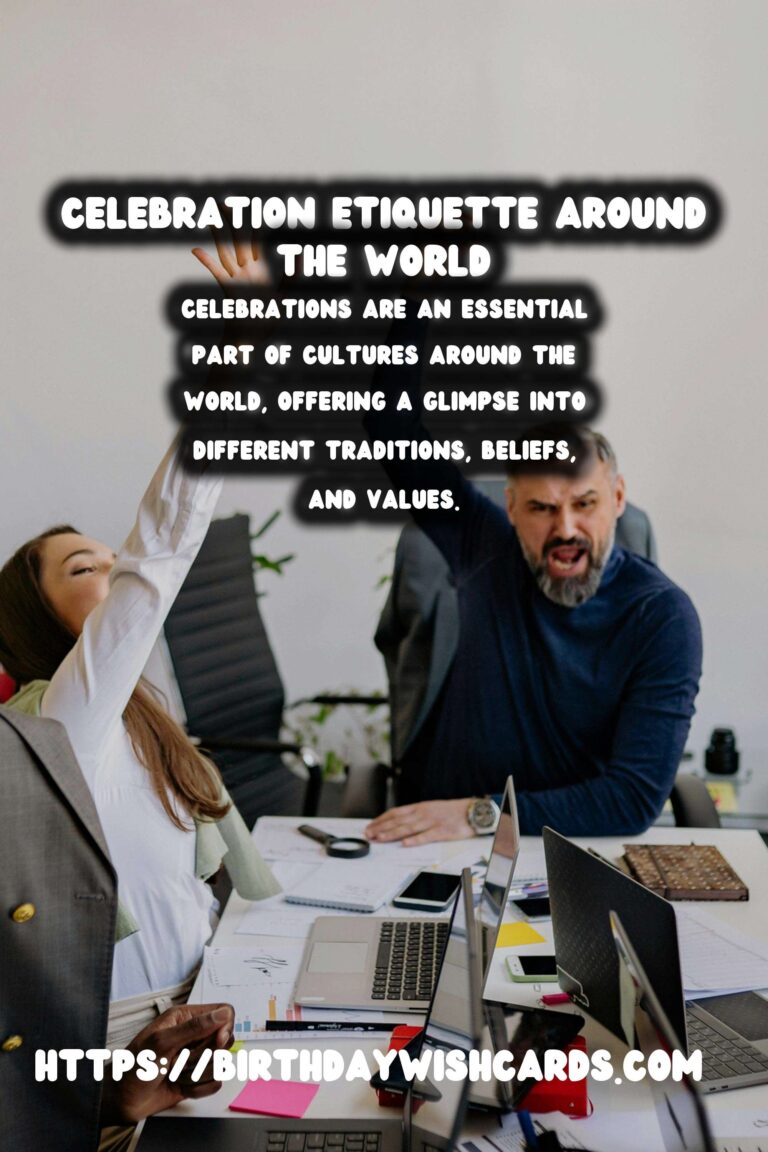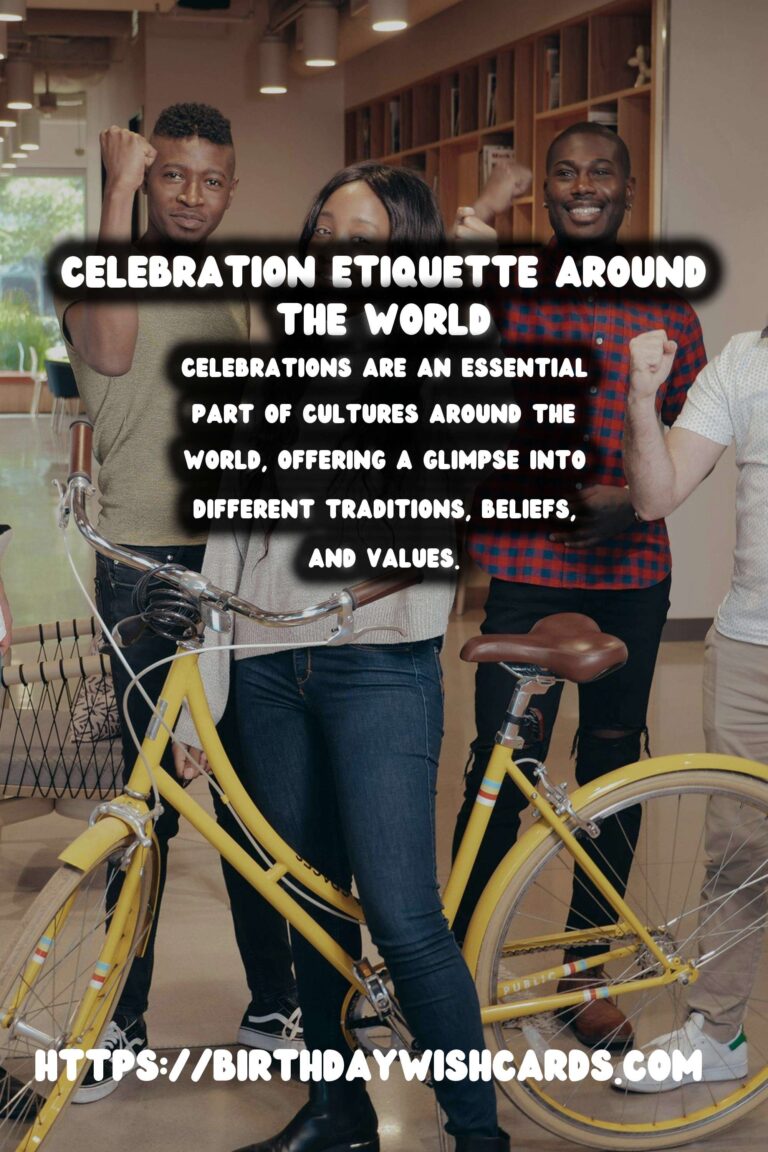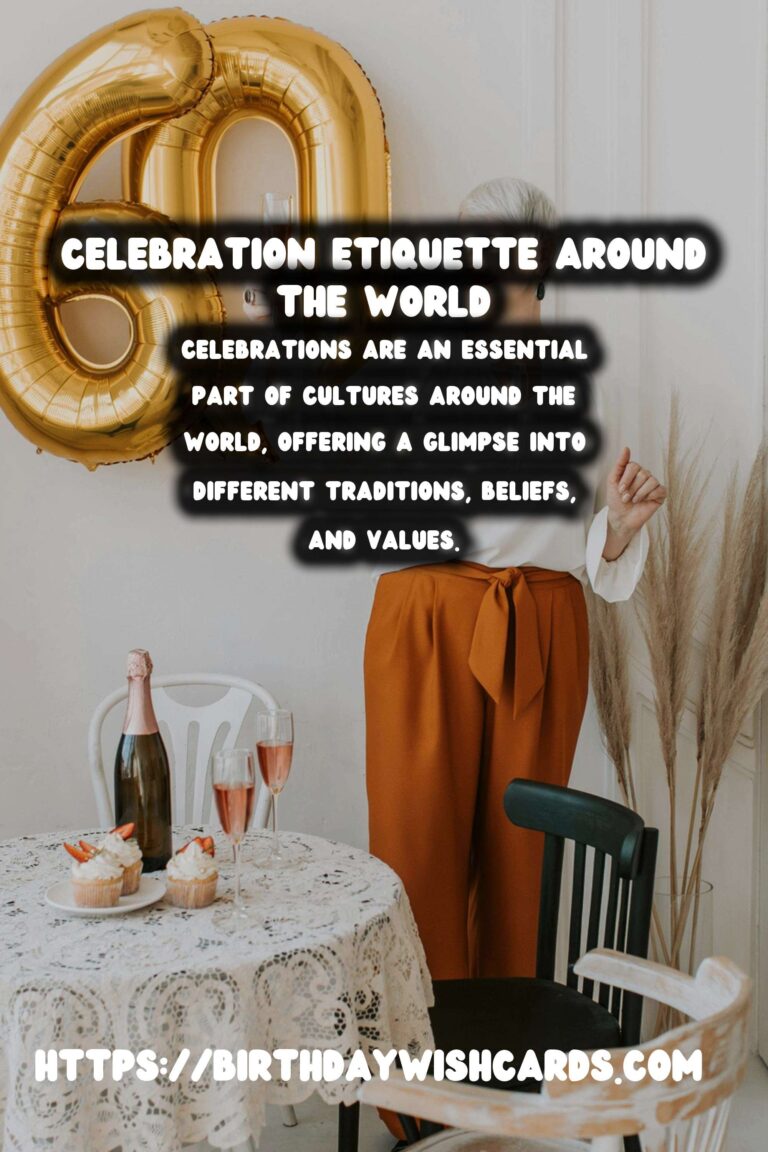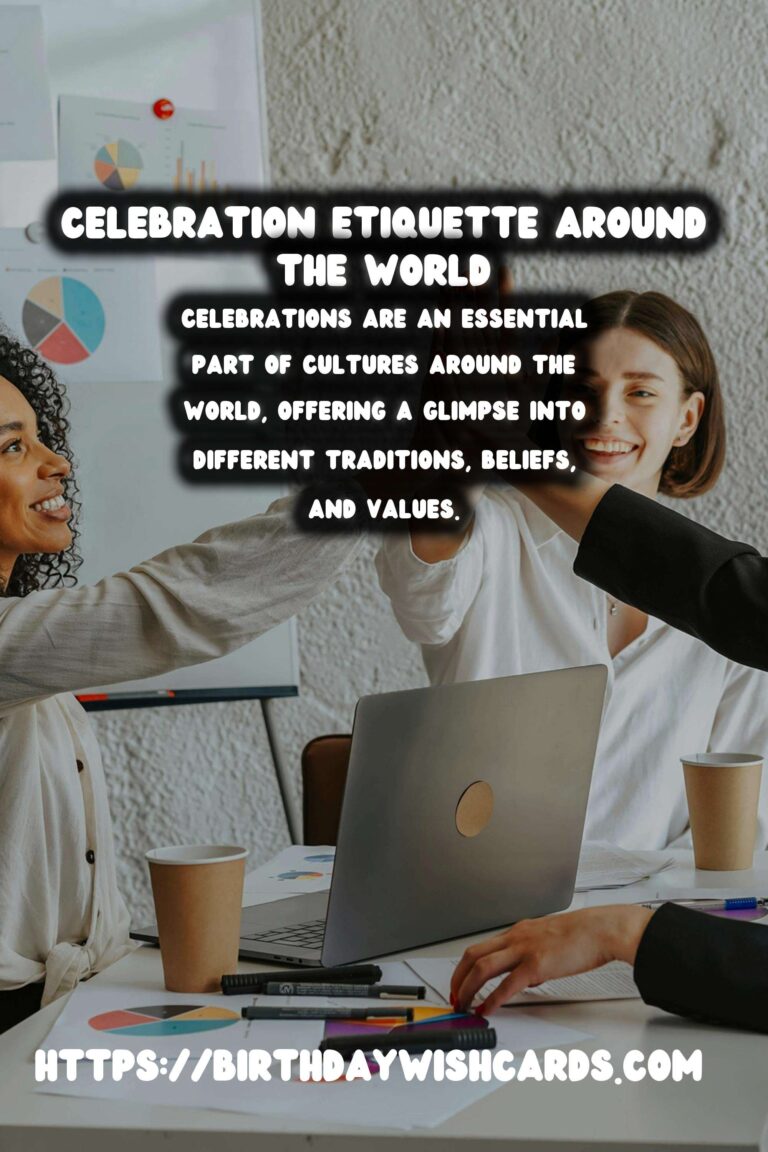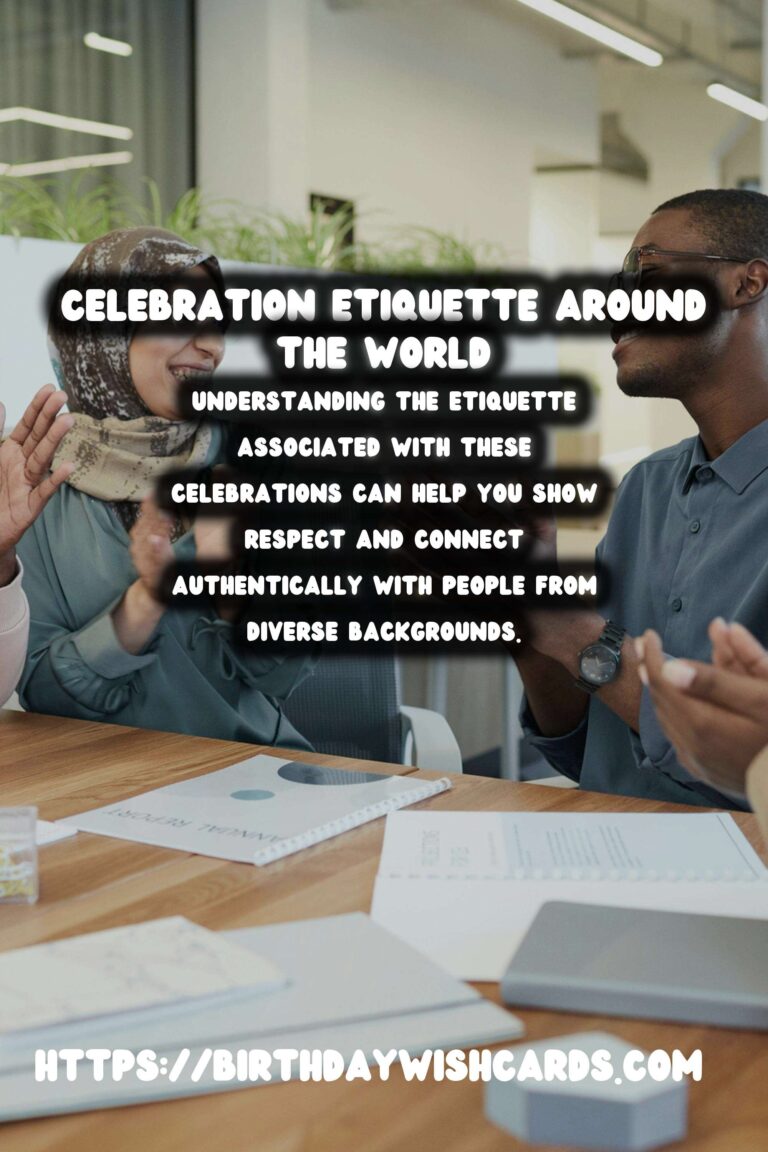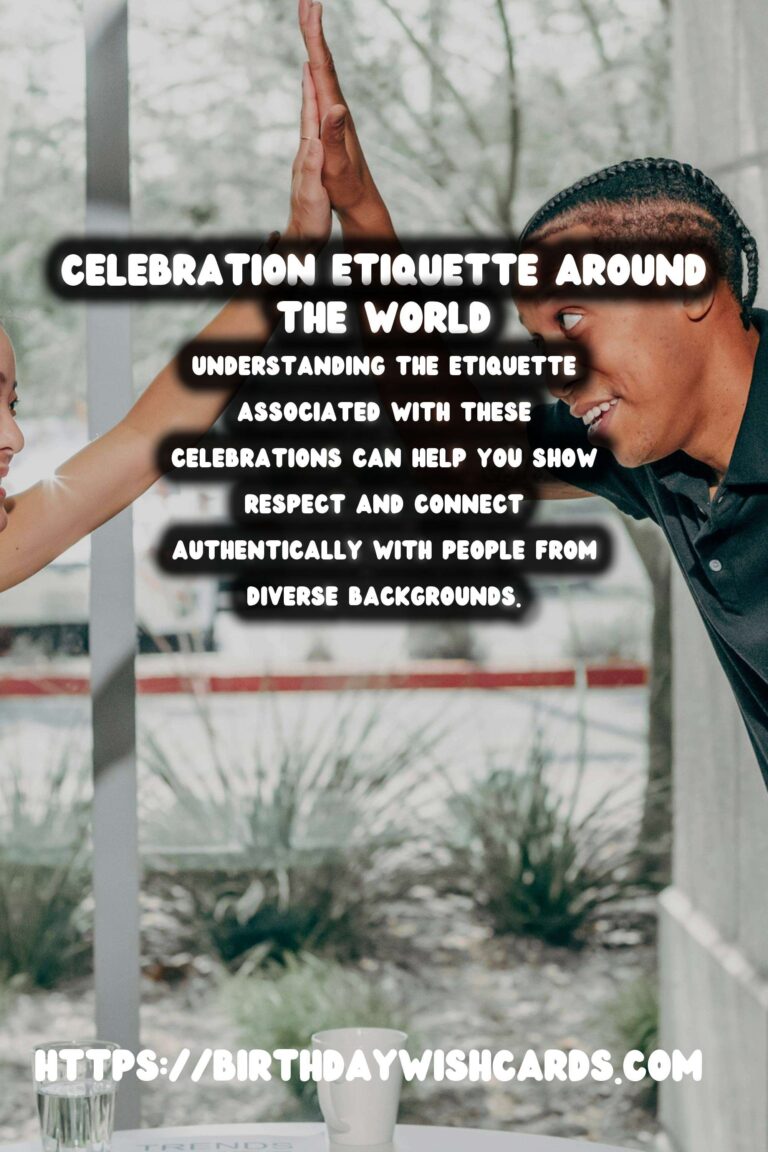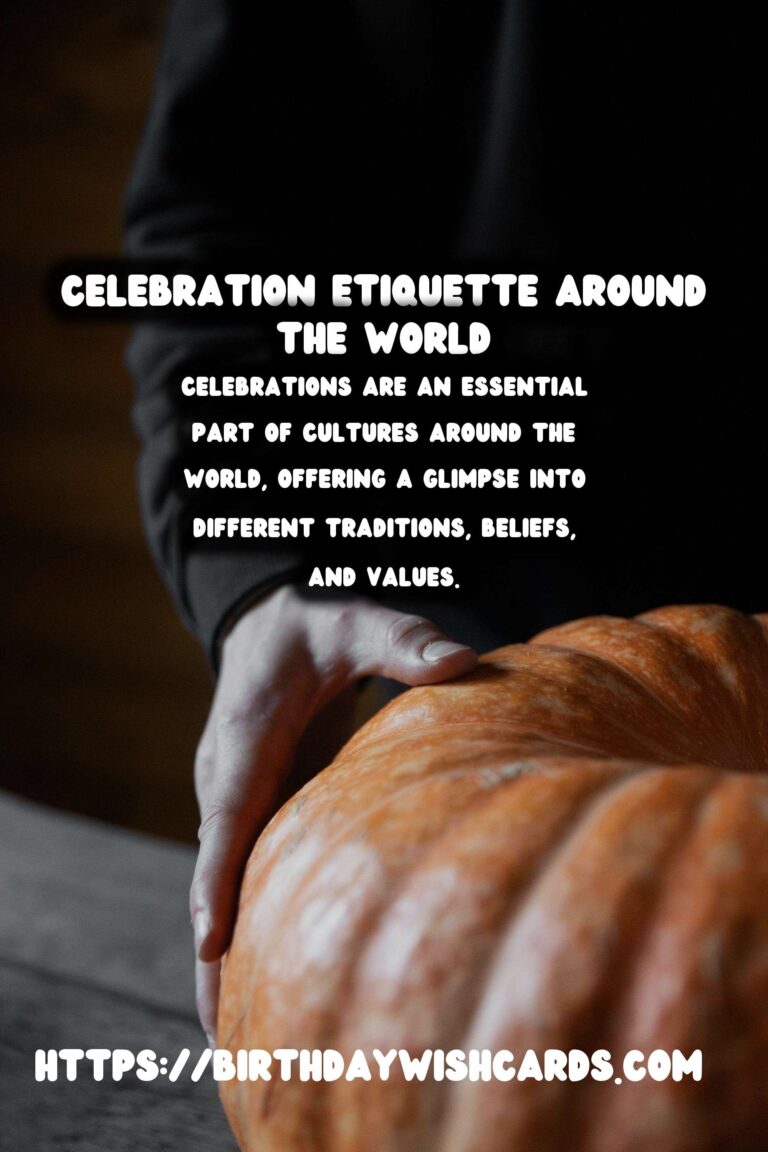
Celebrations are an essential part of cultures around the world, offering a glimpse into different traditions, beliefs, and values. Understanding the etiquette associated with these celebrations can help you show respect and connect authentically with people from diverse backgrounds. In this article, we will explore expert tips for celebration etiquette from various continents that will help you appreciate and participate in these joyful occasions.
Understanding the Importance of Celebration Etiquette
Celebration etiquette is more than just a set of rules; it reflects the values and norms of a culture. When attending a celebration, knowing the dos and don’ts can enhance your experience and help you build relationships. It shows diligence, respect, and an appreciation for the host’s customs.
North America: Thanksgiving and Independence Day
In the United States and Canada, Thanksgiving and Independence Day are two major celebrations. Understanding the etiquette can make your participation more meaningful.
Thanksgiving Tips
– Always bring a dish to share or a thoughtful gift for the host. Common contributions include desserts or beverages.
– If you are invited to a home, arrive on time. Being late can be considered disrespectful, as meals are typically served shortly after guests arrive.
Independence Day Tips
– Be respectful of fireworks and noise regulations. Some people may have animals that are frightened by loud sounds.
– If attending a barbecue or picnic, bring your own chair or blanket to sit on as a considerate gesture.
Europe: Christmas and Easter Traditions
Celebrations in Europe, such as Christmas and Easter, come with their unique etiquette.
Christmas Etiquette
– In many European countries, exchanging gifts on Christmas Eve is a tradition. Ensure that you respect the local customs regarding gifting.
– When invited to someone’s home, it’s polite to offer a small token like chocolates or wine.
Easter Etiquette
– In some countries, it’s customary to douse friends with water or sprinkle them with perfumes, symbolizing the purification of the spirit. Be prepared for playful antics!
– Acknowledge the religious significance if attending an Easter service. Dress appropriately and be respectful during the sermon.
Asia: Diwali and Lunar New Year
Asia is home to vibrant festivals filled with cultural rituals, like Diwali and the Lunar New Year.
Diwali Etiquette
– When visiting Indian homes during Diwali, it’s essential to remove your shoes before entering.
– Offering sweets or decorations as gifts symbolizes good wishes for prosperity.
Lunar New Year Etiquette
– Red envelopes containing money are gifted to children and unmarried adults. If you receive one, both hands should be used to accept it as a sign of respect.
– Avoid giving gifts in sets of four, as the number is associated with death in some cultures.
Africa: Weddings and Cultural Festivals
African celebrations often revolve around weddings and unique cultural festivals that showcase rich heritage.
Wedding Etiquette
– Dress modestly and appropriately, adhering to the cultural expectations of the region.
– If joining wedding festivities, it’s customary to present a gift to the couple. Money is preferred in many cultures.
Cultural Festival Etiquette
– Participate with joy and enthusiasm, showing respect for traditional dances and music.
– Ask questions and be open to learning about the significance of various rituals.
South America: Carnival and Día de los Muertos
In South America, vibrant events like Carnival and Día de los Muertos are celebrated with rich traditions.
Carnival Etiquette
– Embrace the festive spirit, wearing colorful costumes and joining parades. Be respectful of local customs and protocols.
– Always ask for permission before photographing locals in costume.
Día de los Muertos Etiquette
– If invited to honor the deceased at an altar, bring flowers or small tokens to pay your respects.
– Acknowledge the day’s significance, as it’s about remembering loved ones; avoid making it a spur-of-the-moment celebration.
Oceania: Indigenous Celebrations and Christmas
Oceania boasts unique indigenous festivals and traditional practices, alongside Western celebrations like Christmas.
Indigenous Celebration Etiquette
– When invited to a cultural event, seek permission and guidance, showing deference to sacred traditions.
– Respect any specific dress codes or customs that may be in place.
Christmas Etiquette
– Australians often celebrate with barbecues; bring a dish to share in this communal affair.
– Be mindful of outdoor activities and be prepared for summer heat, keeping hydration in mind.
Conclusion: Embracing Diversity in Celebrations
Celebrations are a beautiful part of human connection and cultural exchange. By following these expert tips on celebration etiquette, you can ensure that your participation is not only respectful but also authentic. Learning about and engaging in the customs of others fosters appreciation and understanding, making the world a richer place.
So, the next time you are invited to a celebration, approach it with an open heart and a willingness to learn. Happy celebrating!
Celebrations are an essential part of cultures around the world, offering a glimpse into different traditions, beliefs, and values. Understanding the etiquette associated with these celebrations can help you show respect and connect authentically with people from diverse backgrounds. 



